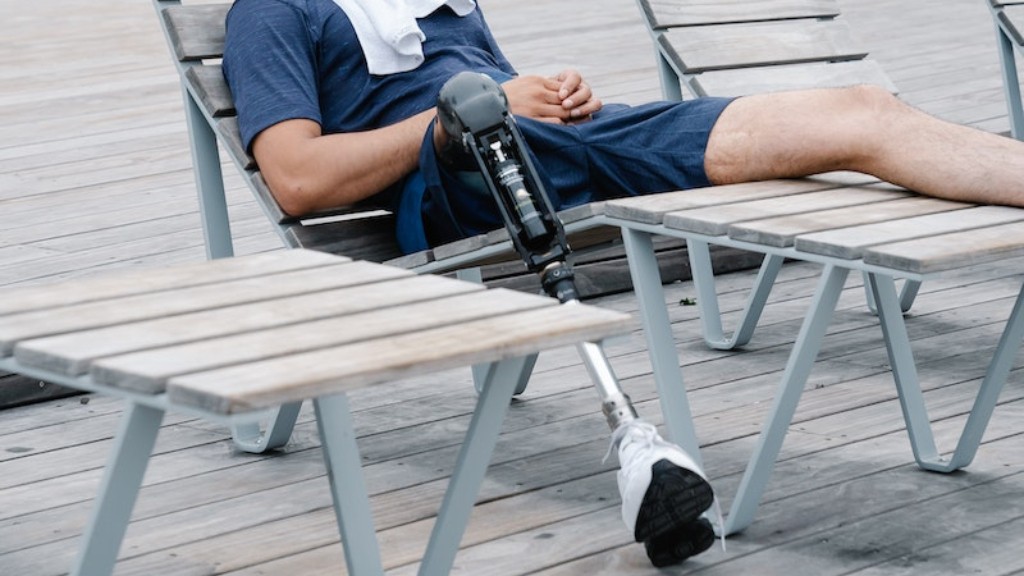The Companies Behind Prosthetics
An Introduction
In recent years, advancements in technology have greatly improved the capabilities of prosthetic limbs, ushering in a new era for amputees. However, behind these life-changing devices are the companies that design, manufacture, and distribute them. This article aims to explore the diverse landscape of prosthetic companies, highlighting both the positive advancements they bring and the potential negatives that arise from their presence in the industry.
The Positive Impact
Prosthetic companies play a crucial role in providing individuals who have lost a limb with the opportunity to regain their independence and improve their quality of life. These companies invest heavily in research and development to make prosthetics more technologically advanced and user-friendly.
For example, Ottobock, a leading prosthetic company based in Germany, has created groundbreaking innovations like the Michelangelo Hand, which utilizes advanced robotics and artificial intelligence to replicate the complexity of human hand movement. This level of innovation allows amputees to perform intricate tasks with a higher degree of dexterity and control.
In addition to technological advancements, prosthetic companies also focus on designing devices that are aesthetically pleasing. They understand the importance of restoring self-confidence and ensuring that the prosthetic limb integrates seamlessly into the wearer’s life. Companies like Touch Bionics have developed realistic-looking prosthetic coverings that can be customized to match the wearer’s skin tone and even incorporate tattoos or birthmarks.
The Negative Implications
While the advancements made by prosthetic companies are admirable, there are also potential negative implications related to the industry. One major concern is the cost associated with these cutting-edge prosthetics. The level of technology and customization that some companies offer can make these devices prohibitively expensive for many. This pricing disparity creates a divide, with only those with financial means being able to access the most advanced prosthetics.
Another concern is the ethical dimension of the prosthetic industry. As demand for prosthetics increases, some companies may prioritize profitability over the well-being of patients. Questions have been raised about the transparency of research, potential conflicts of interest, and the prioritization of financial gain over the best interests of amputees. It is crucial for the industry to maintain high ethical standards and prioritize the needs of patients above all else.
Proactive Measures
To mitigate the negative implications surrounding prosthetic companies, there are proactive measures that can be taken. Local and national governments must work towards establishing policies that ensure access to affordable prosthetics for all, regardless of their financial status. This can involve collaborations between the public and private sectors to provide subsidies or insurance coverage for prosthetic devices.
Furthermore, independent organizations and regulatory bodies should be established to monitor and evaluate the practices of prosthetic companies. This will ensure that the industry remains accountable and upholds the highest ethical standards in providing prosthetic solutions.
The Way Forward
The companies behind prosthetics have radically transformed the lives of individuals who have lost limbs. These companies have the potential to continue innovating and improving prosthetic technology, allowing more people to benefit from these life-changing solutions. However, it is crucial that this progress is achieved while maintaining a strong ethical foundation, ensuring access to these devices for all individuals in need.
As society moves forward, the focus should not only be on technological advancements, but also on creating a more inclusive and affordable prosthetic landscape. By prioritizing access and ethical practices, we can truly harness the power of prosthetic companies to positively impact the lives of people worldwide.
Food for Thought:
How can we strike a balance between innovation and affordability in the prosthetic industry? What role should governments and regulatory bodies play in ensuring ethical practices? Consider the potential implications of these questions and share your thoughts with us.



